Historical copperworks buildings to be restored
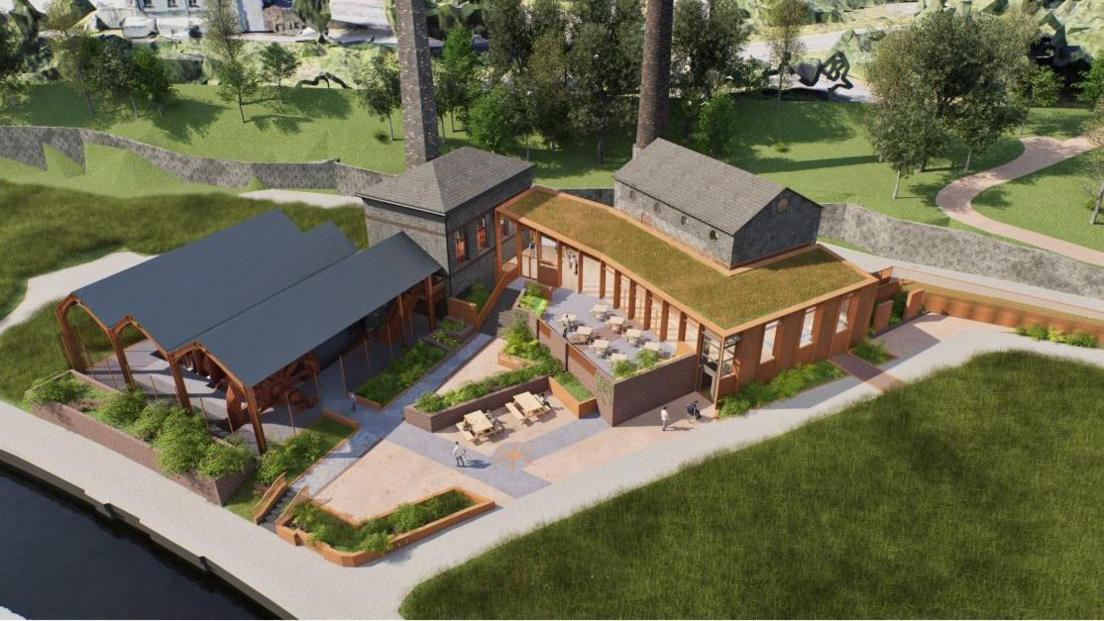
A new building would link the two engine houses, as shown in this computer generated image of the plans
- Published
Three historical copperworks buildings that played a key role in the growth of Swansea over hundreds of years are to be given a new lease of life.
The listed buildings at the former Hafod Morfa Copperworks site currently lie disused but Swansea council is planning to transform them as part of its £1bn regeneration of the area.
Council bosses have put forward an application to bring the Vivian and Musgrave Engine Houses and the V&S No.1 Locomotive Shed at the site in the Lower Swansea Valley back into use.
"The copperworks of past centuries were key to the growth of Swansea, playing a crucial role as major industry over around 300 years," a council spokesperson said.
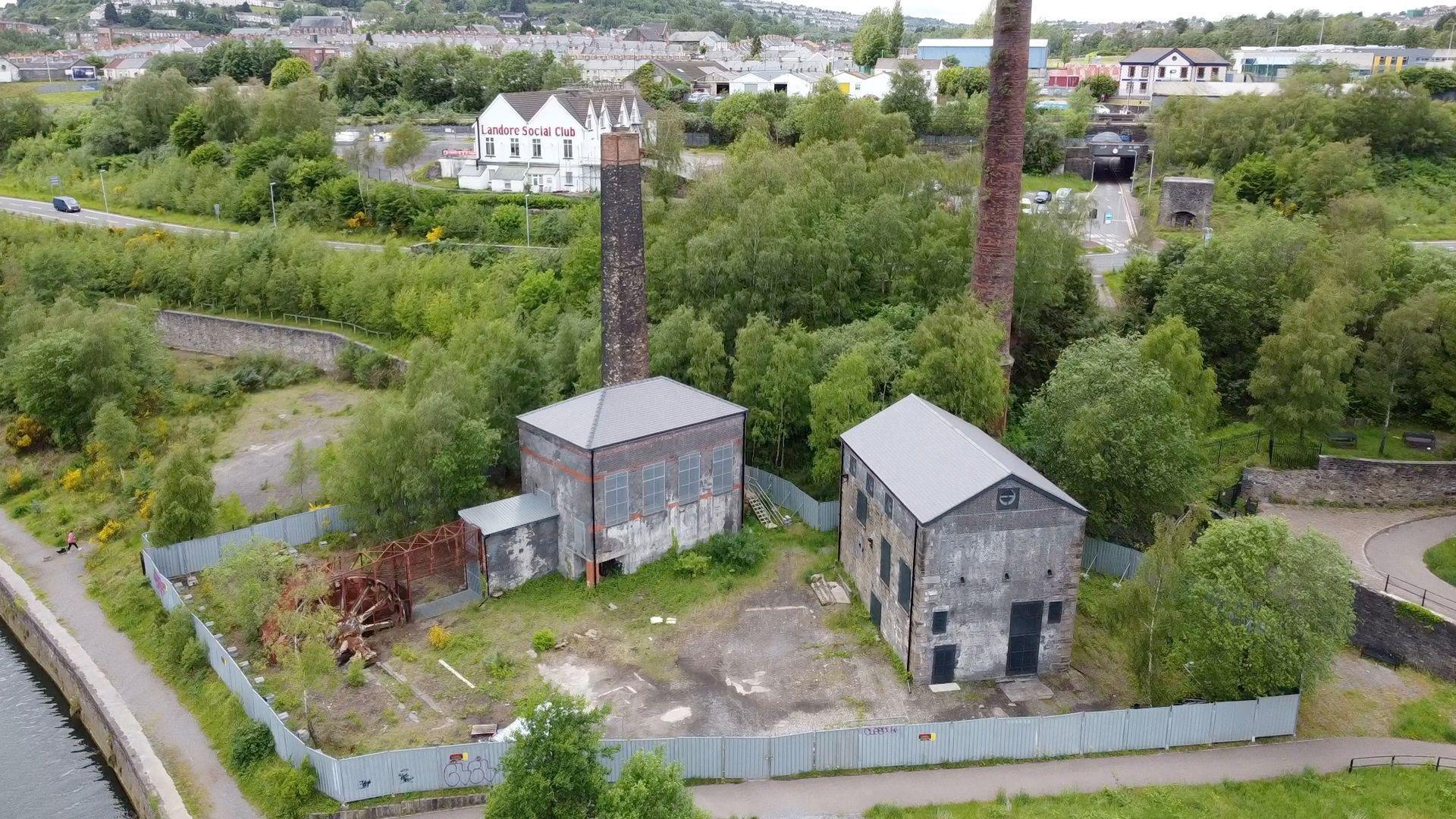
The engine houses at Swansea’s former Hafod Morfa Copperworks site are currently disused
At its 19th Century peak, Swansea produced 90% of all the world's copper.
The council said that, while the industry had declined, some of its buildings and other structures remained and they wanted to see these redeveloped and restored for new uses.
They said the Lower Swansea Valley project, which had a close focus on the site of the copperworks, aimed to result in more wealth and greater local connectivity.
"It’ll help tell the story of Swansea’s rich industrial legacy to new generations," they added.
The Vivian and Musgrave Engine Houses, built in 1860 and in about 1920 respectively, formed "an integral part of Swansea's heritage", the council added.
Copperworks were 'Google of their day'
- Published2 February 2020
Bid for pontoon attraction at copper heritage site
- Published15 September 2022
A council spokesperson said they had saved the buildings from "ongoing decay" several years ago, with a new river pontoon added nearby.
The Musgrave structure, which is a scheduled ancient monument, contains the rare Musgrave Engine, said by the council to be the UK’s only one of its kind to remain in its original location.
The engine's external elements would be protected with a covered shelter, with Wardell Armstrong acting as the council's consultants for the scheme.
Work is also planned to preserve two tall neighbouring chimneys.
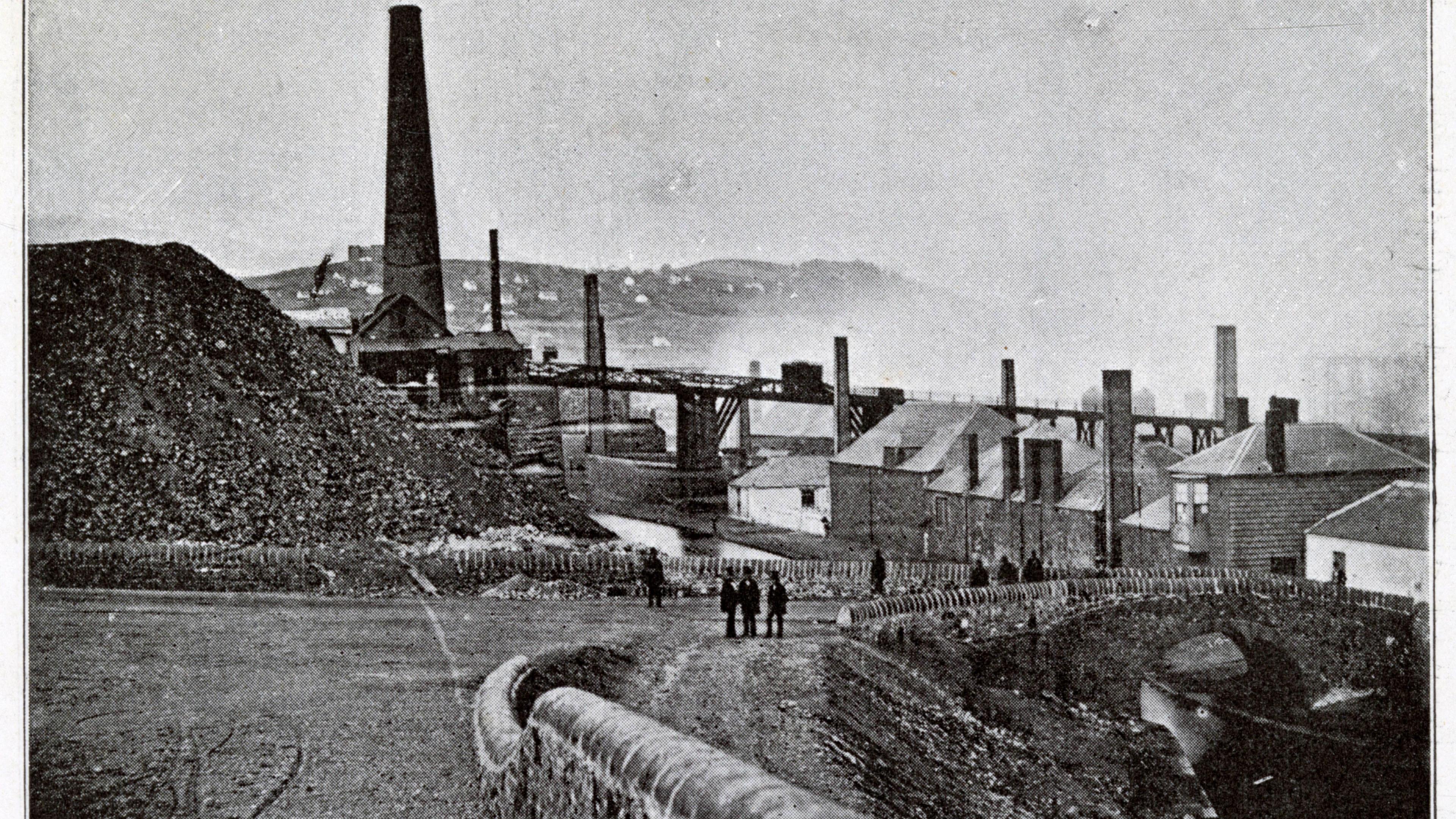
This image taken in 1855 by H. Hussey Vivian, who later became Lord Swansea, is titled 'Hafod Copper and Silver Works and Copper Mills'
Meanwhile, the Vivian Engine House would feature a mezzanine floor, while a new building would link the two engine houses and an outdoor terrace would be created.
These developments would, the council said, make it suitable for a range of uses, including restaurants and cafes, exhibition-style space and shops.
The council said it believed the loco shed, which was built in the 1800s, had possibly been last used around 1980.
The proposals would involve the restoration and reconstruction of the existing building, which the council said had suffered structural damage after being disused for "many years".
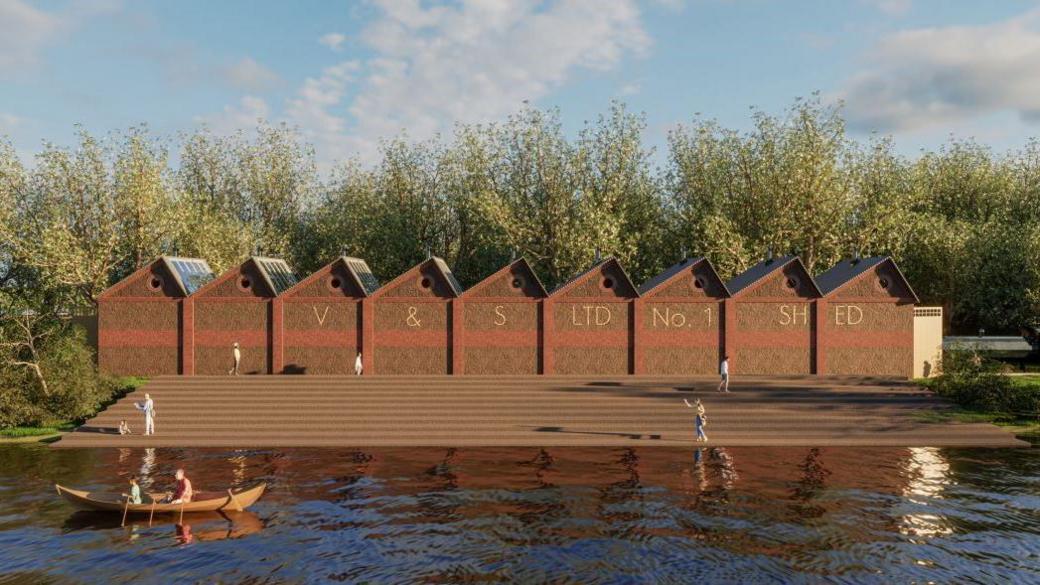
A computer generated image of how the V&S No.1 Locomotive Shed could look in future
The restored loco shed could then have "a range of possible future uses", a council spokesperson added.
The development would also include the building of new access routes from the copperworks site, along with landscaping and the fitting of sustainable new drainage.
Surveys of trees and other biodiversity would also be conducted.
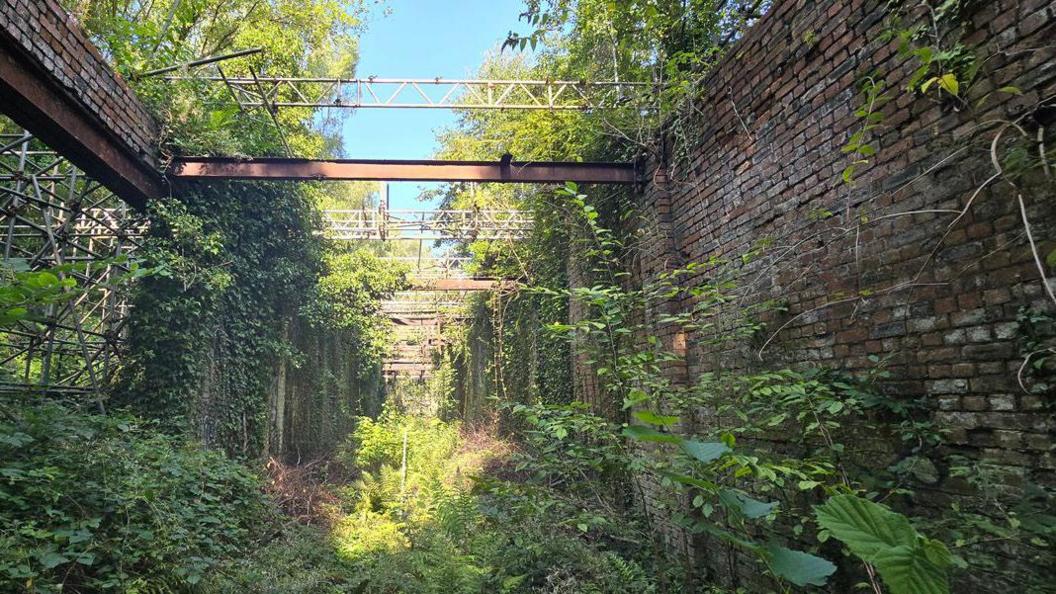
The V&S No.1 Locomotive Shed as it looks now
Swansea council, which is working on a number of other schemes in the River Tawe corridor, said it was now seeking public feedback on the plans.
The schemes are being funded with £20m from the UK government’s Levelling Up scheme.
The regeneration project has already involved transforming other heritage buildings such as the Palace Theatre, Albert Hall and Hafod Morfa Copperworks powerhouse.